Myanmar's icon will become president
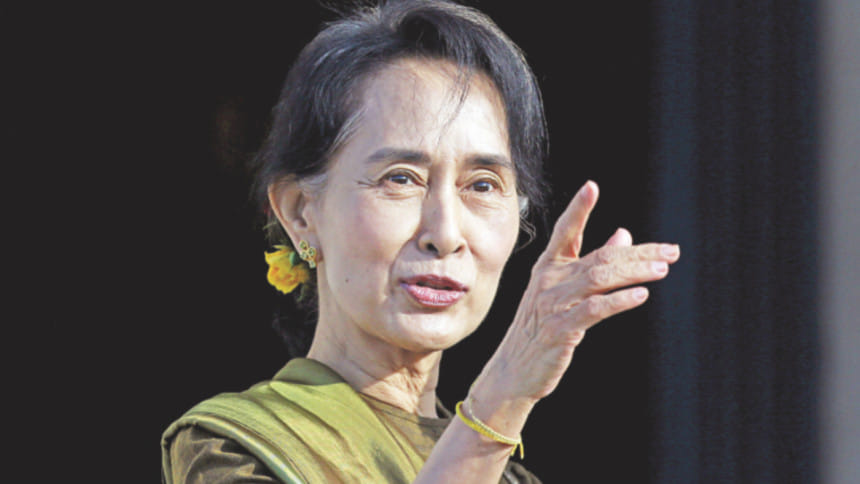
Myanmar's opposition leader is planning to be the country's next president, after her party overwhelmingly won this month's polls. Although the Constitution appears to bar Aung San Suu Kyi from being president – because she has two children who are foreign nationals – her party, the National League for Democracy (NLD), is preparing to nominate her, when the new parliament convenes at the end of January.
But in the meantime the party leader is trying to arrange face-to-face meetings with the country's current top leaders – the President, Thein Sein, the parliamentary speaker, Shwe Mann and the Commander-in-Chief, Senior General Min Aung Hlaing – to discuss the transfer of power and national reconciliation.
Despite 59 (F) – the clause in the Constitution, which seems to prevent her from being the next president – the NLD is paving the way for Aung San Suu Kyi to be president. The party's senior leader and patron, Tin Oo, told The Daily Star: "We need to find a way to make that happen." Party insiders refer to Plan Zero, which certainly seems to mean mapping out a roadmap to make the Lady president in the near future.
Although the election result is yet to be declared officially – as the election commission considers numerous complaints and protests – it is clear that Suu Kyi and the NLD have won the election convincingly. They are on track to win more than 80 percent of the seats that were contested – though 25 percent of the MPs are soldiers, selected by the military's commander-in-chief. "This is where [seat] numbers actually count," said Myat Thu, head of the Yangon School of Political Science. "Now that the NLD clearly has more than 75 percent of the popular vote, it means they have the power to mold the future."
When the parliament reconvenes with the new MPs, the upper and lower houses elect a vice president each, and the military bloc selects a candidate. Then the president is chosen at a joint sitting of both houses of parliament from the three candidates. This means the NLD will nominate two presidential candidates – from the upper and lower houses – and their favoured contender will certainly be elected the next president.
"The people clearly want her [Aung San Suu Kyi] to be president," said Tin Oo. "It is only right and proper, she deserves to be president," he said emphatically, though the Constitution seems to prevent this from happening. But one way to overcome this, according to the NLD leader, is to temporarily suspend or repeal the clause that bars her. The U Nu government did that in the 1950s to allow the army commander, General Ne Win, to be a caretaker prime minster, he said. But legal experts say the clause that allowed that then, in the 1948 Constitution, is not in the current one.
Sources in the president's office are also considering how this provision could be "waived" in this case. This is something the military might accept, according to Myanmar analysts and observers. "The military commander and government officials have all emphasised the need to protect and preserve the Constitution," said Myat Thu. Min Aung Hlaing last week went even further and said the army would protect the Constitution with their lives.
For some this meant he was ruling out the possibility of changing the Constitution to allow Aung San Suu Kyi to become the president. But if the clause blocking her was temporarily revoked – just for the Lady in this instance -- this might meet the approval of the country's top leaders, who drafted the 2008 Constitution. "As long as 59 (F) is still there to prevent other foreigners – Indians or Chinese – becoming president in the future, the army may accept it," said a source in the president's office, who declined to be identified.
The NLD has been insisting constitutional change as the top priority for the new government, but recently NLD leaders like Tin Oo have suggested it needs time and detailed discussion before constitutional amendments are presented to the parliament – up to one or two years, and after the political dialogue on a Federal state, which is the next stage of the peace process.
Of course, what is needed is for Suu Kyi to sit down with the top three men in the government and map out the transfer of power. "It's a power sharing proposition," said Myat Thu – as the army still has considerable influence in government – selecting one vice president, and three ministers in the new government: border affairs, defence and home affairs. They need to discuss how to move forward or else there will be instability, uncertainty and even a constitutional crisis."
With the NLD in the driving seat because they convincingly control the parliament, Suu Kyi's nomination for president seems certain. In the process of selecting a new president, the parliament has to elect a speaker and deputy speaker for both houses; these four people then form a scrutinising committee to vet the presidential nominations and conduct the parliamentary poll. In this case the four will be NLD MPs or supporters, perhaps from one of the elect ethnic minority representatives, Arakan, Shan or Zomi.
They would have the power to approve Suu Kyi as the candidate for the lower house, and with the NLD's superiority of numbers in parliament, duly elect her as the president. The only thing then stopping her from assuming the presidency would be a legal challenge to the constitutional court – or an administrative coup by the commander-in-chief, which is possible under the current Constitution. Both would be very disruptive and increase instability. It would end Myanmar's international support and reverse the liberal reform process. Something everyone wants to avoid.
So the proposed talks between Suu Kyi and the three leaders are pivotal to what happens next in Myanmar. She has already met the Speaker Shwe Mann, when they agreed on the need for the transition to the NLD government to be smooth and peaceful. He also advised her to seek a meeting with the former leader and architect of the current Constitution and political system, Senior General Than Shwe, according to sources in the government.
As a result she has been trying to arrange a meeting for more than a week now, but has received a response from him, though the contents of the message are being kept strictly confidential by both sides. At the same time she is still pressing for meetings with Min Aung Hlaing and Thein Sein. So far they have postponed possible meetings until after the election results are announced officially.
The president is willing – in fact anxious – to meet the Lady to prepare for the handover, but his close advisers have pressured him into waiting, according to sources in the president's office. But the 45-day delay recently mooted will be relaxed, according to sources close to the process. The meeting may now take place in the very near future. However, it is the planned meeting with the Commander-in-Chief, scheduled for early December, which will be crucial, if there is to be a smooth and peaceful transfer of power.
The writer is a specialist on Myanmar and a former BBC World Service New Editor for the region.

 For all latest news, follow The Daily Star's Google News channel.
For all latest news, follow The Daily Star's Google News channel. 

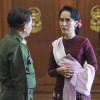
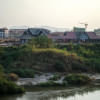
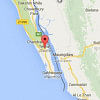
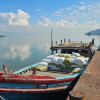
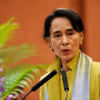


Comments